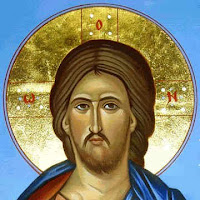 St. Benedict
St. BenedictSt. Benedict's advice still resounds today.
Around the middle of the sixth century, an Italian monk wrote some guidelines for people interested in the monastic life. The result was a small book that he described as "advice from a father who loves you."
The monk's name was Benedict, and his modest little book came to have an impact out of all proportion to its size. Known as the "Rule of St. Benedict," it sparked a revolution in the church that is still going on today. That's because it became the foundation for the whole of Western monasticism, as well as a source of guidance for countless lay people seeking a closer relationship with the Lord.
Lent is a good time to explore the time-tested way of holiness that Benedict presented in his "little rule for beginners." In fact, his Rule even includes a special chapter on how to observe Lent. As we might expect, it urges readers to undertake extra acts of self-denial. But in a bit of a surprise move, Benedict makes a point-twice-of stressing that this is meant to be a time of joy. Just as Jesus taught that those who fast should be careful not to look glum (Matthew 6:16-18), Benedict called his readers to enter into Lent "with the joy of the Holy Spirit" (Rule, Chapter 49).
The rest of the meditation here Art
The posting below is found at Lent and Beyond: I want to urge the readers of this blog to go to this site and take advantage of the prayer and meditations found there. You will be blessed and find encouragement for your spiritual journey! The entire rule of St. Benedict found here .
The gladness of spiritual desire
Summa Minutiae quotes St. Benedict on Lent:
"Let us devote ourselves to tearful prayers, to reading and compunction of heart, and to abstinence.
During these days, therefore, let us add something to the usual amount of our service, special prayers, abstinence from food and drink, that each one offer to God “with the joy of the Holy Ghost” (1 Thes 1:6), of his own accord, something above his prescribed measure; namely, let him withdraw from his body somewhat of food, drink, sleep, speech, merriment, and with the gladness of spiritual desire await holy Easter. "
Compunction of heart with the joy of the Holy Spirit. Withdrawal from merriment with gladness.
The canonical story is that the fast of Lent is followed by the feast of Easter. St. Benedict shows that Lent itself can be a time of feasting, if you do it right.
——
May the Lord grant us grace that this Lent will indeed be a time of feasting on the Word and in the joy of the Lord’s presence.
-Lent and Beyond


0 Comments:
Post a Comment
<< Home